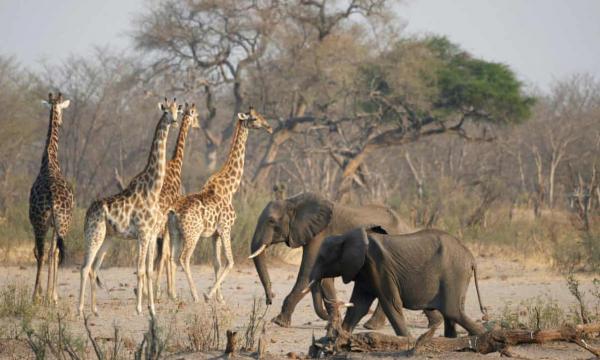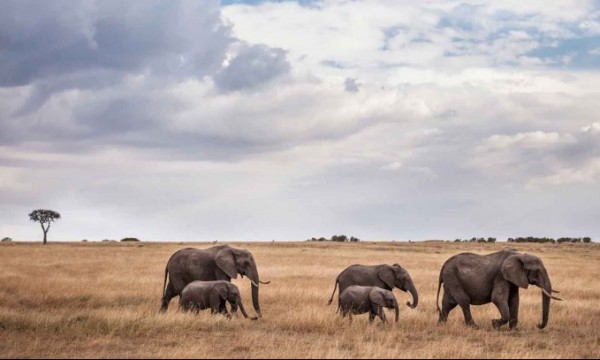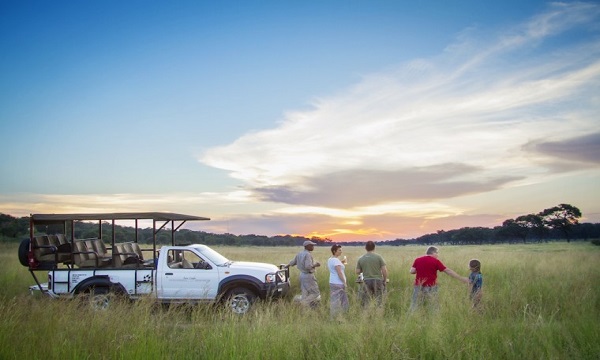Call Us
8:00am - 17:00PM
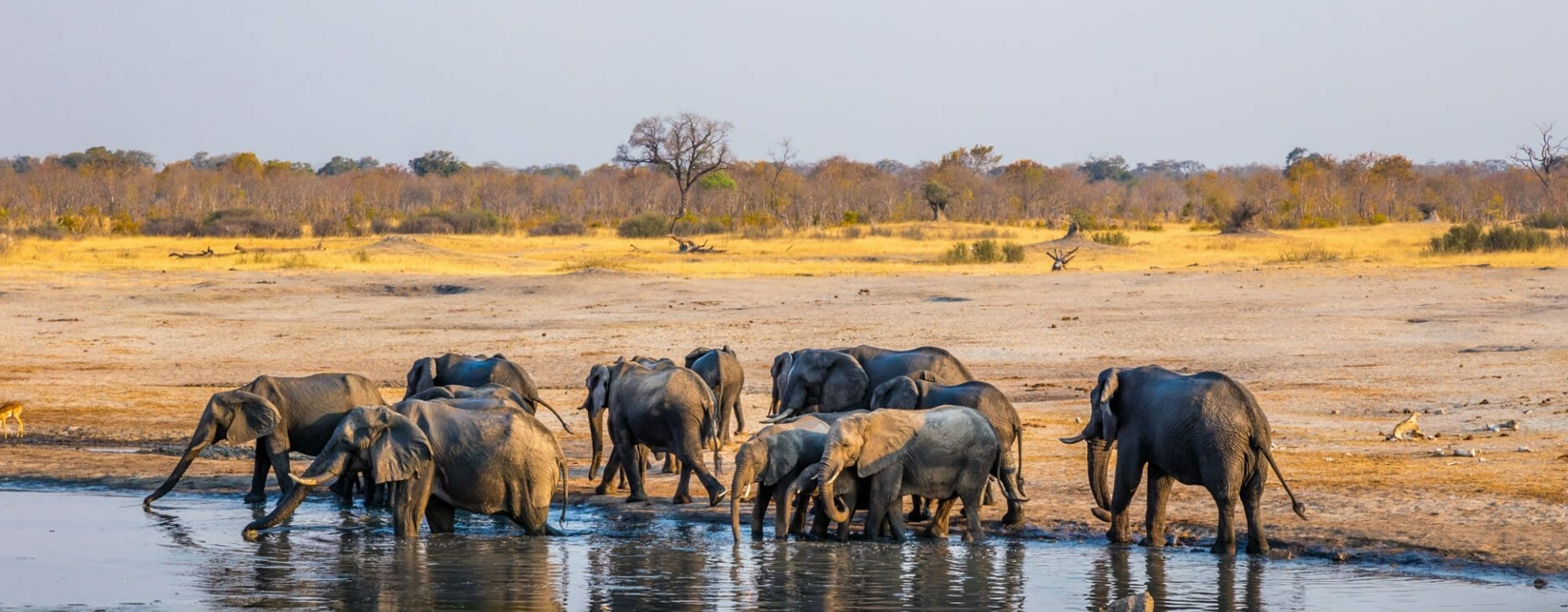
Hwange National Park
About Hwange National Park
Hwange National Park is the largest and one of the most famous national parks in Zimbabwe. Hwange's rich flora and fauna include sprawling savannas, woodlands, and various wildlife and birdlife species.
With the majestic Big Five and 100 other species of mammals – the park has the biggest diversity of mammals across Africa. Also, It has been renowned as Zimbabwe’s top safari draw for its large herds of elephant population of around 50,000.
The park sits close to the Kalahari Desert, a region with scarce vegetation and water. With beautiful landscapes and fewer crowds, the Hwange offers several breathtaking activities to visitors.
By visiting Hwange National park, during your Zimbabwe Safari, you can also make a difference in wildlife conservation. Your tourist dollars will contribute to conservation programs and also provide valuable income to local people.
Hwange National Park Tours and Safaris
We Think You’ll Love
Best time to visit
The Best Time To Visit Hwange National Park is from July to October. During these dry months, animals gather at waterholes, making them easier to see as the vegetation thins. For bird lovers, the summer months from November to March are ideal, when migratory birds fill the park. This period offers a fantastic opportunity for wildlife enthusiasts and bird watchers alike to experience the park's rich biodiversity.
Wildlife
Hwange National Park offers a vast diversity of wildlife, including the world's largest elephant herds, lions, spotted hyenas, and black-backed jackals. It's also a sanctuary for cheetahs, leopards, and African wild dogs. The park is renowned for its diverse antelope species, such as greater kudu, gemsbok, sable, and roan antelope. During the dry season, these animals gather around waterholes, providing spectacular Zimbabwe Wildlife viewing opportunities.
What To Experience
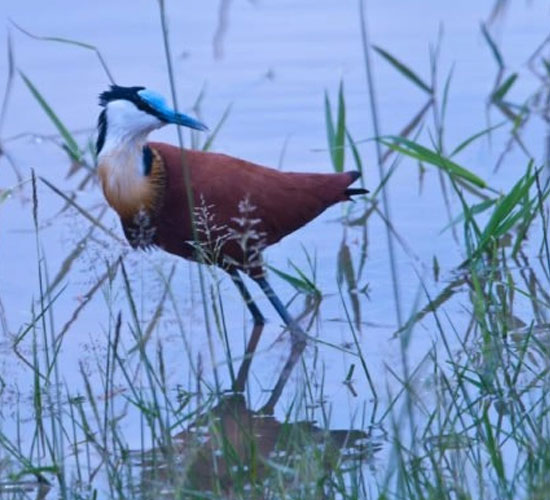
Bird Watching
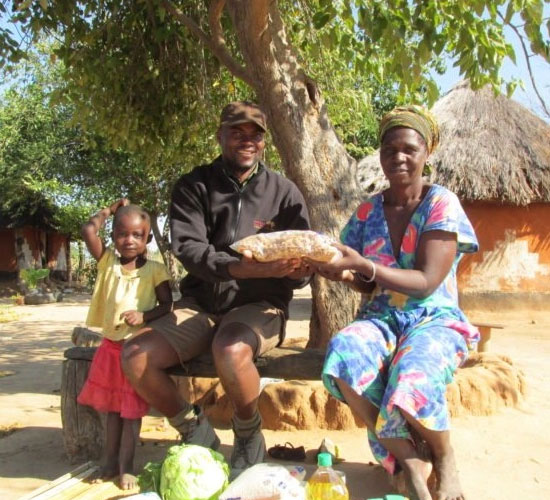
Village Experience
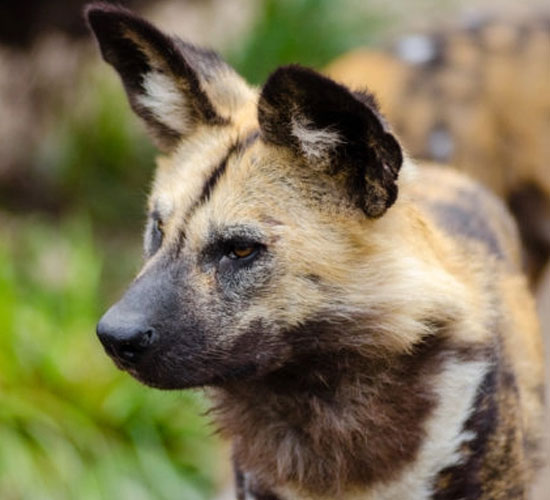
Painted Dogs Project Center
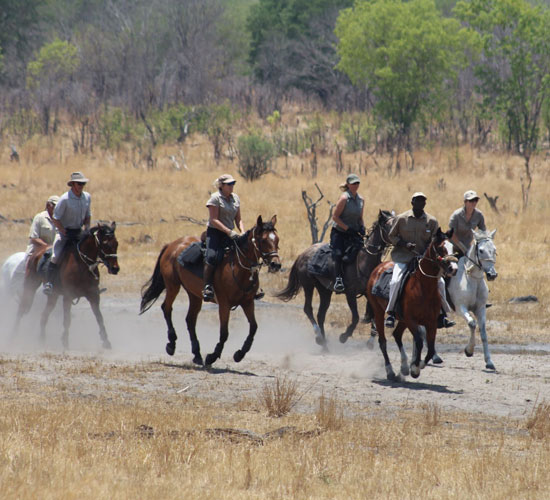
Hwange Horseback Safaris
Travel Guide For Hwange National Park
We Think You’ll Love
Geographical area & Map of Hwange
Hwange National Park is spread over 14,650 square kilometres and lies in the northwest of the country, on the main road between Bulawayo and Victoria Falls. The nearest town to the national park is Dete.
The park is part of the greater Kavango-Zambezi Transfrontier Conservation Area that centres on the junction of the Zambezi and Chobe Rivers. It includes protected areas of Botswana, Namibia, Zambia, Zimbabwe, and Angola.
Most of the area is covered by the Kalahari sands. It does have two distinct geographic zones. The northern area, part of the Zambezi watershed, is dominated by mopane woodland. Another is Kalahari scrublands drain into Botswana’s Makgadikgadi depression.
Why visit Hwange National park
As one of the best-kept gems of the continent, Hwange offers excellent wildlife and colourful bird species. Coming to the top safari activities, from walking safaris to fascinating game drives, it has a lot to offer to its guests.
So, whether you take a Day Trip To Hwange or spend more than one week, you will be ensure an unforgettable Zimbabwe Wildlife experience!
So many elephants:
Hwange national park hosts a large number of elephants famous for their massive breeding herds. There are around 50,000 elephants and some herds are made up of around 300 elephants.
Diverse wildlife:
Hwange National park boasts diverse wildlife and significant birdlife over 100 mammals and 500 bird species. With the impressive elephant herds, the park is also home to other four members of the African Big5. In addition, cheetahs, hyenas, giraffes, antelopes (gemsbok, greater kudu, sable and roan antelope) and many others can be found in Hwange.
There are many man-made waterholes you can find in the park and you will see animals around them, especially in the dry months. You can spot pods of hippos and crocodiles around these water holes.
World-class accommodation facilities:
Hwange National Park has many beautiful accommodations which have largely improved in recent years. Thanks to the welcoming efforts of the wildlife safaris to revive the safari lodges and camps in this African region.
There are several safari lodges in Hwange that are run by private operators and located in private concessions. You will get served by world-class facilities from them never less than Serengeti and Okavango Delta.
Best Time To Visit
Hwange National Park is a year-round Safari destination. Yet, the Best Time To Visit Hwange is from March to May and from September to November. These shoulder seasons boast desired weather, fewer crowds, and lower prices.
- If you want to visit Hwange for the best wildlife viewing, you should opt for the dry winter months between May and October.
- The peak game viewing time is June and July months when the bushes thin out and the animals congregate in large numbers around the water sources.
- If you are a bird lover, you should choose between November and February to visit Hwange while on your Safari In Zimbabwe. February is the best time for birding as hundreds of migrant birds are present in large numbers.
How to get to Hwange National Park
It’s easy to access Hwange National Park in various ways. The close distance Victoria Falls Airport is the most accessible way to enter Zimbabwe by air.
By Air-
Regular flights connect from the city of Johannesburg to Victoria Falls Airport (VFA). Victoria Falls connects Hwange with the rest of Africa through connecting flights.
Domestic Flights-
Domestic flights between parks are usually incorporated into your Zimbabwe Safari Packages and are most often booked by your tour operator. Hwange is not connected by any scheduled flight.
By Road-
Land transfers from the airport are the only way to reach the Hwange National Park via car rental drive. The weekly buses also travel to Botswana with a stop at the border of Hwange.
Travellers can reach the main camp side on a tar road which is located 200 km south of Victoria Falls. It takes hardly 3 hours to get into the park.
To visit some other camps deeper in the park, especially in the rainy season, a 4WD vehicle might be needed.
|
The Distance from Harare to Hwange |
The Distance from Harare to Hwange |
|
The Distance from Bulawayo to Hwange |
4 hours (340 kilometres) |
|
Distance from Johannesburg to Hwange |
Distance from Johannesburg to Hwange |
Main Attractions of Hwange National Park
Hwange national park is a place of many breathtaking attractions. Visitors come here to enjoy the safari and see the rich diversity of wildlife and birdlife that calls the park home. Apart from that the park is also well-known for its archaeological and historical sites.
Excellent Wildlife game:
Hwange National Park is an excellent wildlife area that boasts over a hundred great and small animal species. In the park, you can see a variety of wildlife games, predators, and some unique animals that can’t find anywhere else.
Hwange is home to one of the largest elephant populations in the whole of Africa. The Hwange National Park is the largest in Zimbabwe and is well known for its abundance of wildlife and birdlife.
Abundant of Bird species:
Hwange National Park is home to around 400 bird species including some unique and endangered species. In the warmer season, Hwange hosts many migratory birds including Southern Ground Hornbill, the Martial eagle, Cape Griffon, Dickinson’s kestrel, and many others.
Archaeological and Historical sites:
Apart from wildlife and birdlife, Hwange has also some famous archaeological, cultural, and historical sites like the Bumbusi National monument. There are also many amazing landscapes that are worth visiting such as Chivasa Pan, Tshakabika Hot Springs, Nehimba Pan, and Masuma Dam as well.
Excellent photographic opportunities:
Hwange also offers a great opportunity for excellent photography because of its diverse landscapes. It’s like heaven for wildlife and nature photographers. It offers picturesque views of nature and stunning wildlife games as well.
Animal conservation:
Like many other national parks in Zimbabwe, Hwange is always alert on the conservation process. It works on both wildlife and nature conservation. Here you can see the painted dog conservation centre and like some others.
Hwange was on the hot conservation discussion in the last few years after the death of Cecil, the Lion. This news raised awareness of the issues of wildlife conservation in Africa. Read more about Zimbabwe wildlife conservation.
Entrance fees & rates of Hwange National Park
The Hwange National Park is located in the southwest of Zimbabwe. Its main entrance is located 2-3 hours of drive or 30 minutes of air journey south of Victoria Falls.
Entrance fees of Hwange are quite reasonable:
|
Citizen: Adult |
USD 5.00 per day |
|
SADC: Adult |
USD 15.00 per day |
|
Non-resident: Adult |
USD 20 per day |
Private Vehicle Fees:
|
Locally Registered Vehicles |
Locally Registered Vehicles |
|
Foreign Registered Vehicles |
USD 10.00 per day |
Travel Tips for Hwange National Park
You need to ware about some essential travel information to visit Hwange while on your Safari To Zimbabwe. These help you to travel in this iconic park, at its fullest.
- Most of the park’s roads are fit for driving with 2×4 vehicles.
- There are many options available to stay that suit a range of budgets-everything from safari camps to luxury safari lodges.
- Apart from the guided drive and self-drive, you can also prefer horseback safaris for game viewing.
- Hwange is a year-round safari destination and is also accessible in the wet season between November to April. Although it’s hard to spot big games during this time, it’s the best time for birding safari.
- Though October comes under the best time to visit Hwange, it’s also the hottest month of the year. So, it can be quite difficult for those sensitive to hot weather.
Things to do in Hwange National Park
When Traveling To Zimbabwe, Hwange National Park is a must-visited safari destination on any Zimbabwe Safari Packages. Here, you can explore many amazing safari experiences while visiting Hwange. Here are some must-do activities-
Game drives in Hwange National Park:
Like other national parks in Africa, Hwange also offers the traditional game drive for the best safari experience. No visit to Hwange can be completed without a game drive.
The morning game drive is most attractive because of more wildlife sightings. It starts early in the morning between 6 am and gives the chance to witness many wildlife games.
There is a full-day game drive one can do between 6 am to 6 pm and can encounter the Big Five who roam freely in the park.
Bird Watching in Hwange:
Hwange National Park hosts a good concentration of birdlife that attracts thousands of bird enthusiasts. Around 400 bird species including some migratory birds can be seen in Hwange making it a twitcher’s paradise.
Just keep your eyes open and look up to the sky and you never miss out on the incredible sightings of many eye-catching bird species.
Visiting the Painted Dog Conservation Center:
Wild dogs are called painted dogs having roamed through many countries. Their numbers are dropping down slowly from around 50, 000 to only 3,000. This huge drop in numbers resulting the loss of natural habitat.
The Painted Dog Conservation Center in Dete, Zimbabwe is like heaven for them. It works intending to address the real issues through the protection of orphaned wild dogs. It also provides education and development projects for the growth of the local communities.
Village tour experiences:
To develop tourism in the Hwange District, steps have been taken to visit local villages around tourist destinations. So, while you are on your Zimbabwe Safari to Hwange National Park, you should go on a cultural visit. Through this, you can learn more about the local people and their epic cultures.
Their hand-made craft and arts will teach you more about their skill and intelligence. Purchasing these things, empower them to support their families.
Wildlife sightings
Hwange has a good wildlife concentration with over 100 mammals, around 400 bird species, and 100 tree species.
- It is famous for its large elephant herds which travellers can encounter in the park.
- There is also a significant population of African Painted Dogs (Wild Dogs) and the population of Hyena and Gemsbok as well.
- When lions are common to encounter, leopards and rhinos are luckily seen.
- Apart from these, many other animals can be seen including giraffes, sable, eland, waterbuck, zebra, warthog, baboon, and cheetahs.
- Hwange is also an ideal, place for birds including around 400 species. You can spot the iconic ground-dwelling kori bustard and crowned cranes dancing during the mating season as well.
Safari Game Drive in Hwange National Park
Game Drives through the park focuses on all of the plant and animal species found in the area. You will be led by our experienced guide who knows everything about the Hwange and is passionate about every living creature around. He will educate you on details ranging from the smallest insects to the tallest trees. His efforts ensure the experience you get would be a lifelong memory.
- Hwange is one of the few renowned elephant sanctuaries left in Africa. So, going for a game drive to spot the elephant herds around the muddy waterholes is best among all game drives.
- The park is home to myriad four-legged residents that you will encounter while on a game drive. It includes all the members of the Big Five, elegant giraffe, swift cheetah, and striped zebra.
- At the time of the dry season in Hwange, lions are cached hunting the majestic elephants. This rare phenomenon is simply surprising at that time.
- The cold months of the game drive take the tourists to spot the calving of wild dogs. It’s astonishing to see their increasing number with the arrival of the puppies.
- After the full-day game drive, begin the evening tour by indulging in decadent African delicacies under the dazzling sky. Witness the nocturnal species and enjoy the wilderness at night.
What types of travellers would enjoy the Hwange NP
Travellers who want to experience Victoria Falls along with a wildlife-rich park will love the proximity of Hwange. It is one of the most visited landmarks in the world.
Family Safari To Hwange offers many game viewing facilities suitable for every age. For those looking for a self-drive, Hwange is the best option to roam in the wild with their own company.
Accommodation Options in Hwange
There are many options for private lodges both inside and outside of the park which provide fully-inclusive rates. There are wildlife Management Authority Camps inside the park and they have self-catering cottages and wildlife campsites.
Amalinda Collections
The Amalinda Safari Collection is set in the remote wilderness area of Hwange National Park. It offers luxury intimate safari experiences to tourists. Their Driving You Wild touring service offers reliable, safe, and responsible transfers throughout Zimbabwe. The passionate and experienced guide will get you to know more about the flora and fauna of Hwange.
Bomani Tented Camp
To experience great year-round game viewing in Hwange, you need to look no further than Bomani. It always prefers to plan your safari time around you and offers luxury services to the guests.
Let us arrange a travel package to meet your budget if you are heading on a Zimbabwe Safari.
Visit Hwange with less crowd, and magnificent sightings!
What makes Hwange so special is its fewer crowds, giving the chance for an intimate Zimbabwe Safari Experience. All of its biodiversity, enormous elephant herds, and ease of game viewing make the park an authentic safari destination in Zimbabwe.
best month to Visit Hwange National Park
We Think You’ll Love
Peak
Low
Mixed
Hwange National Park in January
January in Hwange is vibrant with the rainy season's lush landscapes. Wildlife is spread out, offering unique sightings. It's a great time to see newborn animals and abundant birds in a thriving environment.
Hwange National Park in February
The park remains lush and green in February. Wildlife viewing is more intimate with animals dispersed. This period is ideal for bird watchers and those looking for a peaceful visit amidst vibrant nature.
Hwange National Park in March
As the rains start to lessen in March, animals begin to gather, and the greenery starts to fade. It's a transition period perfect for Zimbabwe Safari Tours, offering a mix of lush scenery and emerging wildlife sightings.
Hwange National Park in April
April marks the end of the rainy season, with the park transitioning from green abundance to drier landscapes. This month offers a unique Hwange National Park Tour experience, where the flourishing post-rain flora begins to attract diverse wildlife, setting the stage for excellent game viewing.
Hwange National Park in May
May brings cooler nights and warm days. The drying landscape starts attracting animals to waterholes, making it a promising time for wildlife viewing.
Hwange National Park in June
With the dry season beginning, June offers clear skies and cool evenings, perfect for spotting wildlife around waterholes. It's an excellent time for Hwange Tours, with comfortable day temperatures for exploring.
Hwange National Park in July
July's dry conditions make wildlife viewing exceptional, as animals gather at waterholes. The warm days and cool nights create ideal conditions for Hwange National Park Safari Tours, offering great wildlife encounters.
Hwange National Park in August
The peak of the dry season in August offers superb wildlife viewing, as animals cluster around scarce water sources. It's the Best Time To Visit Hwange National Park for vibrant game sightings against the backdrop of warm days and cool nights.
Hwange National Park in September
Continuing the dry season, September provides excellent game-viewing opportunities. Warm days and cool evenings make it a perfect time for Hwange National Park Tours, focusing on observing wildlife at waterholes.
Hwange National Park in October
October is hot, marking the last of the dry season's optimal wildlife viewing. It's a memorable month for Hwange safari tours, with animals gathering at waterholes before the rains return.
Hwange National Park in November
The return of the rains in November transforms the park with fresh greenery. Wildlife disperses, but the park's beauty is renewed, making it a unique time for a Hwange National Park visit as the cycle of life begins again.
Hwange National Park in December
December in Hwange is lush with the rainy season in full swing, offering a park full of newborn animals and diverse birdlife. It's a beautiful time for Hwange National Park tours, showcasing the park's vibrant ecosystem and growth.
Frequently Asked Questions
We Think You’ll Love
Hwange National Park is a sanctuary for nearly 100 mammal species, including all of the Big Five, with a spotlight on one of the world’s largest elephant populations. Visitors can also encounter endangered rhinoceroses among the vast biodiversity.
The Best Time to Visit Hwange National Park is from April to October, during the dry season. This period offers the greatest opportunity to see wildlife congregating around waterholes, making for spectacular game-viewing experiences.
Getting to Hwange National Park is straightforward. Visitors can opt for a two-hour flight from Mana Pools National Park, making access to Hwange’s wilderness both easy and convenient for adventurers
A Safari in Hwange National Park offers diverse encounters with wildlife, from observing majestic male lions and packs of African wild dogs to spotting cheetahs, elephants, kudu, and even side-striped jackals. It’s an immersive experience in the wild.
Hwange Safari Tours may have age restrictions for night safaris. It's advisable to consult with our safari experts to understand specific age requirements or restrictions to ensure a safe and enjoyable adventure for all participants.
The climate at Hwange National Park changes with the seasons. During the dry season, April to October, conditions are ideal for wildlife spotting. The wet season, December to March, transforms the park with greenery and newborn animals, though travel may be more challenging.
Entrance fees for Hwange National Park differ by visitor type. Non-resident adults typically pay around USD 20 per day, contributing to the conservation and maintenance of this magnificent wildlife haven.
Yes, overnight stays in Hwange National Park are possible, with a variety of accommodations ranging from luxury lodges to campsites. Staying overnight allows for a deeper exploration of the park’s nocturnal wildlife and landscapes.
We are thrilled to help you plan your perfect safari holiday
We'd be delighted to help you with any questions you have about properties & safaris. Please fill in the form below so that we can help you create your perfect safari holiday.
Or
Contact Us
Feel free to give us a call or send us an e-mail:
Start Planning Your Tailored African Safari

Expert Safari Knowledge
With decades of expertise, we're your trusted safari guides, ensuring every moment exceeds your expectations.

Tailor-made African Safaris
Tailored to your preferences, our African Safaris guarantee an adventure perfectly suited to your desires.

Long-term Relationships
Our enduring partnerships across Africa provide exclusive access and authentic experiences.

Carefree Travel
Leave your worries behind and accept carefree travel with Falcon Safaris, where every detail is handled to perfection.
Our Travelers Say
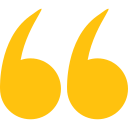
We travelled with Falcon Safaris in Zimbabwe and Botswana for 16 days. Falcon designed a wonderful trip with private guide to the most interesting sites in both countries. The organization of the whole trip was excellent, flights within the country, accommodation and activites. The guides were very knowledgable and told us a lot about the countries, their history, people, economy and much more. We visited the Great Zimbabwe Ruins, the Victoria Falls Tour and a number of national parks in both countries.
Rhino tracking was a real adventure! We had tremendous further game drives and saw very many animals - we did the Big Five. We had much more Victoria Falls Activities than planned and enjoyed very much.We strongly recommend Falcon Safaris to everyone planning a trip to Southern Africa and East Africa.
Wonderful trip to Zimbabwe and Botswana with excellent organization and very competent guides

Our Consultant Vimbai was very helpful and accommodating. We stayed at the Elephant hills hotel which was nothing short of amazing.Our activities included a helicopter flight, dinner cruise as well as a morning game drive. All the activities were absolutely amazing.
Exceptional!

We worked with Gertrude to schedule and organize everything and she did an excellent job. I asked a lot of questions via e-mail and she answered everyone in a timely helpful manner. Our guide at Victoria Falls was also great. He met us at the airport, provided a thoughtful tour of the Falls and got us to our next guide in Botswana. Our lodgings at River View Lodge were just as described- very comfortable and excellent food. All the staff were so pleasant and helpful. If I had to do it again I would arrange a morning boat ride as well. We only did the sunset boat rides and they were the high point of our entire trip- we saw so many animals and our guide was very knowledgeable. Just a great experience. Our lodgings at Oddball's Enclave was rustic and we loved it. So great to disconnect from the world for a bit. Leo, our guide, was the best - got us out and about, saw fantastic wildlife and got back to camp safely each time. Doc manages the camp so well. This whole trip was planned and organized by Falcon Safaris and we could not have been happier.
Fabulous, well planned trip

Falcon safaris have given my the correct advice with excellent service. The only suggestion will be to work closer with the lodges to confirm bookings as soon as possible. We have booked and pay our deposit a year in advance. We have only receive our final convermation from Chobe Safari lodge a week before departure. I do realize its not within your controle but with limit alternatives and a group of 14 people it becomes an issue to find alternative accomodation if the booking was cancelled.
Excellent and efficient service
Explore Our Africa With Customize Your Tour
We love Africa's diversity and create amazing trips for you. With 30+ years of experience, we customize every trip just for you.

